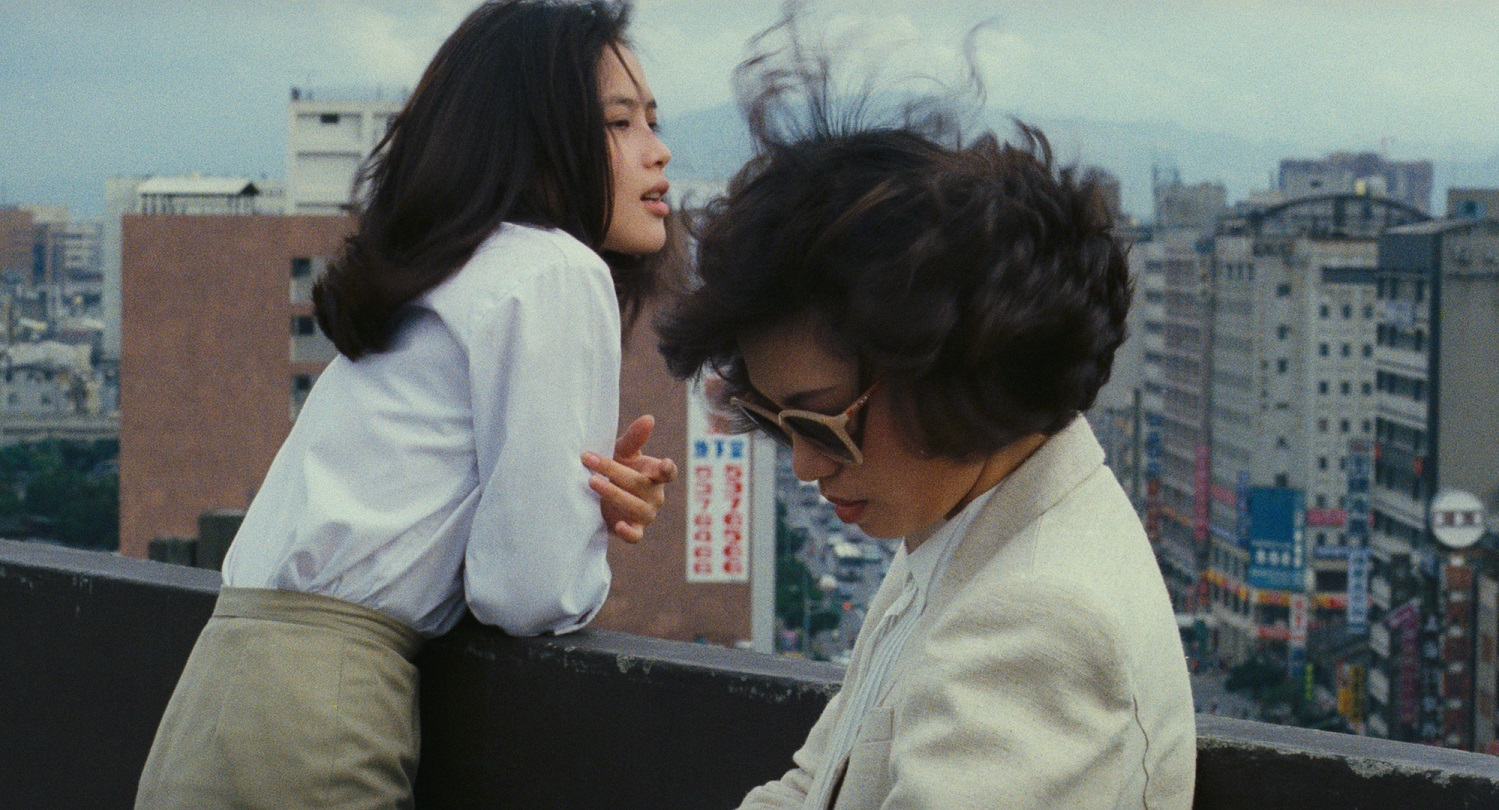In 1980s Taipei, corporate executive Chin (Tsai Chin) and her boyfriend Lung (Hou Hsiao-Hsien) try to keep their relationship together as various factors (obligations to family members/old friends, demotion and unemployment) conspire against them. Lung’s plan to emigrate to the US to work with his brother-in-law provides some hope for the couple, but this prospect becomes uncertain as their relationship comes under increasing pressure.
Yang, who co-wrote the script with fellow director Hou, effectively uses the characters of Lung and Chin to highlight the issues affecting Taiwanese society during the mid-1980s. Chin’s workplace being taken over by a larger corporation, along with her having an affair with co-worker Ke, reflects the growing Westernisation of young Taiwanese people during this period, as well as the significant economic growth within Taiwan that resulted in such a societal change. In addition, the inclusion of her Japanophile younger sister, who aspires to emigrate to the country, highlights the increasing economic power of Japan during the 1980s and its subsequent appeal to aspirational youth. Similarly, Lung’s aspirations to move to the US with Chin and work with his brother-in-law reflect how the increasing globalisation of young Taiwanese goes beyond East Asia to include the previously alien West.
However, Lung’s need to support his financially irresponsible father-in-law as well as his childhood friend highlights how this newfound aspiration clashes with traditional values where family and friends are supported and individual desires come second. Yang also uses other individual moments to show the changing landscape of Taiwan. An early conversation between Chin and Ke has Ke lamenting that the landscape of Taipei is so filled with identical apartment buildings that he can’t tell which ones he designed. A later scene showing Lung at a pub with Chin’s new bosses has one of them show off his English skills and declare that being able to speak English is a sign of superiority.
However, Yang is also careful to ensure that Lung and Chin’s own personal struggles are not overshadowed, with enough time given over to exploring their individual emotional states. In particular, Yang makes excellent use of wordless sequences that don’t telegraph what either character is feeling, but instead allow Hou and Tsai to express Lung and Chin’s emotions through subtle acting. A sequence where Chin goes out partying with her younger sister begins with her joining in the fun, but as the action moves to a local disco, her mood visibly changes as she thinks about her fracturing relationship with Lung. Both Hou and Tsai prove themselves to be more than up to the task of conveying their characters’ sadness and frustration with their respective situations, which is especially impressive considering their non-acting backgrounds (Hou being an acclaimed director and Tsai being a pop singer).
Taipei Story allows acclaimed New Taiwanese Cinema director Yang to both explore both intimate and socio-political issues through his exploration of the relationship of his two main characters, with impressive results. It’s easy to see why this film has received acclaim from the likes of Martin Scorsese, who oversaw its 4K restoration as part of his World Cinema Project.
